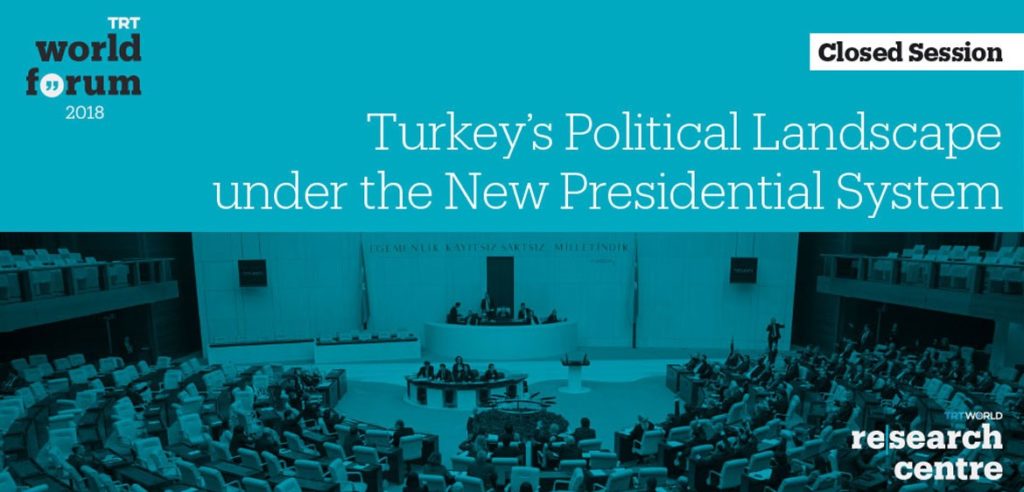On October 4, 2018 TRT World Research Centre held a roundtable meeting titled “Turkey’s Political Landscape under the New Presidential System”. This was part of a series of roundtable meetings in the two-day TRT World Forum 2018, which included eight public sessions and 11 closed sessions. This roundtable meeting was held in English under the Chatham House Rule. It stipulates that ‘when a meeting, or part thereof, is held under the Chatham House Rule, participants are free to use the information received, but neither the identity nor the affiliation of the speaker(s), nor that of any other participant, may be revealed.’ The referendum of April 16th, 2017 marked a monumental transformation in Turkey’s political system. People voted in favour of replacing Turkey’s parliamentary system with an executive presidential democracy. According to those who framed this constitutional amendment, the Turkish presidential system is not a carbon copy of other models but rather a distinct system that has taken Turkish political history, culture and values into account. The executive branch, which had hitherto been elected by and from the parliament, would now be elected directly by the electorate by popular vote. The first election for transitioning to the new presidential system was held on June 24th, 2018. In the course of the electoral process, new political alliances emerged on the parliamentary level, namely the Cumhur Alliance (AK Party and MHP) and Millet Alliance (CHP, IYI Party, DP and SP), signifying how the presidential system could fundamentally change the political arena in Turkey. The Turkish political landscape is open to potentially unexpected developments regarding the culture of alliances and their consolidation. The election resulted in a first-round victory for President Recep Tayyip Erdogan and a parliamentary majority for the Cumhur Alliance. In lıght of these changes these changes, this session aimed to identify the potential fault lines and dynamics of the presidential system in Turkey.
